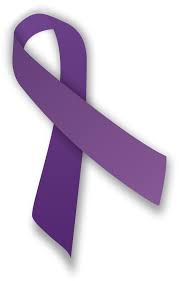Charity begins at home. So does violence.
Three-quarters of all violence against women occurs in a place where a woman should feel most safe: her own home. The latest government statistics show that one in four women in the UK will experience domestic violence in their lifetime and, for one in five, this abuse will include a sexual element. The British police report that domestic incidents represent one-third of all recorded assaults and injuries. Women are five times more likely to be killed by their partner, ex-partner, or lover than are men. These are shocking statistics.
The effects of domestic violence are national as well as personal. The cost of such forms of violence to the UK economy is estimated to be £15.7 billion a year: including nearly £10 billion in “human and emotional” costs; more than £3.8 billion in costs for the criminal justice system, healthcare, and housing; and more than £1.9 billion in days off work.
More to the point, domestic abuse triggers powerful emotions in victims and survivors. And the abuse does not only have devastating effects on the primary victims. 200,000 children in the UK live in homes where there is a known risk of violence. Exposure to domestic violence influences children’s behaviour, confidence, social skills, educational achievements, mental health, and future relationships.
It is important to note that the lives of boys and men, as well as LGBTQ+ people, are also blighted by domestic violence, but three-quarters of victims and survivors identify as heterosexual women. Although women from every part of our community endure domestic abuse, poor women and those from ethnic minorities are disproportionately affected. BME women also face additional barriers to disclosing abuse. They (rightly) fear racist responses and the further stigmatisation of their communities. A recent report by Imkaan called Reclaiming Voice, and the result of a collaboration between Sumanta Roy (Imkaan’s head of research, evaluation, and development) and Dr Ravi Thiara (sociologist at the University of Warwick), it is a devastating exposure of the levels of abuse directed against BME women in the UK.
High levels of domestic abuse have persisted, despite decades of legal and judicial reforms. There have been numerous governmental interventions; laws have been introduced to improve police and court procedures; training in identifying victims and potential abusers have been given to law enforcement agents and medical personnel. Feminists have been particularly active in drawing attention to the problem.

But too many women in our community continue to endure acts of cruelty from the men they live with. For these women, domestic abuse can become a routine occurrence that intrudes on all aspects of their lives, affecting everything from the way they carry out domestic chores, what they wear, and who they see. Insouciant cruelty and casual slaps often lead to beatings and rape.
Victims and survivors are reluctant to reveal what they are going through, even to friends and other members of their family. They report feeling ashamed, even though all shame resides with the abuser. They feel stigmatised and embarrassed to admit that they have been victimitised. They often refer to their state of dishonour.
Their abusers are also remarkably skilled at minimising the harms: “it was just a shove”; “all relationships have their ups and downs”; and “it was just the once”. They observe that other men are more aggressive than them. They use the plural pronoun (“we”) to imply that what happened was part of normal human interactions. Worse: they claim that their victims provoked them.
What can be done? Abusers need to be identified and encouraged to change their behaviour. It is never “OK” to treat anyone with less than respect.
Obviously, women-at-risk also need to be offered more effective ways of reporting abuse to the authorities; safe living arrangements have to be provided; medical care for them and their children must be improved.
However, the crisis of domestic abuse is not simply a matter of criminalising men; nor is it good enough to provide support for victims and survivors after the abuse has already happened. New ways of empowering vulnerable women must be found – not a simple task since domestic abuse inevitably lowers women’s sense of agency and even personhood.
Crucially, the shame that victims often feel needs to be removed. Shame only exists because of a widespread denial of the pervasiveness of domestic harms. In other words, survivors of domestic abuse feel ashamed because the silence around victimisation conveys the message that they are not like other, more “normal” families. This feeling of invisibility makes women reluctant to speak about their experiences and more likely to assume that others hold them in lower regard because of the abuse. In contrast, publicising the extent of sexual abuse in our societies conveys the message that victim-survivors are everywhere. It creates a visibility that makes the internalisation of harmful values less likely.
More attention also needs to be focussed on the power relations that enable domestic violence to flourish. After all, most men strive to be loving partners to the women in their lives. Young men don’t set out to become abusers! Contesting violence against women needs the voices of men as well as women, challenging the cultural, economic, and political frames in which we all experience the world. Men, women, and people of all genders benefit from creating a world where domestic violence simply does not happen.
RELATED READING:
Joanna Bourke
‘Imkaan, Intersectionality, and Sexual Violence’
SHaME Blog, 11 March 2020
Read Imkaan’s report on our Resources page:
Reclaiming Voice: Minoritised Women and Sexual Violence